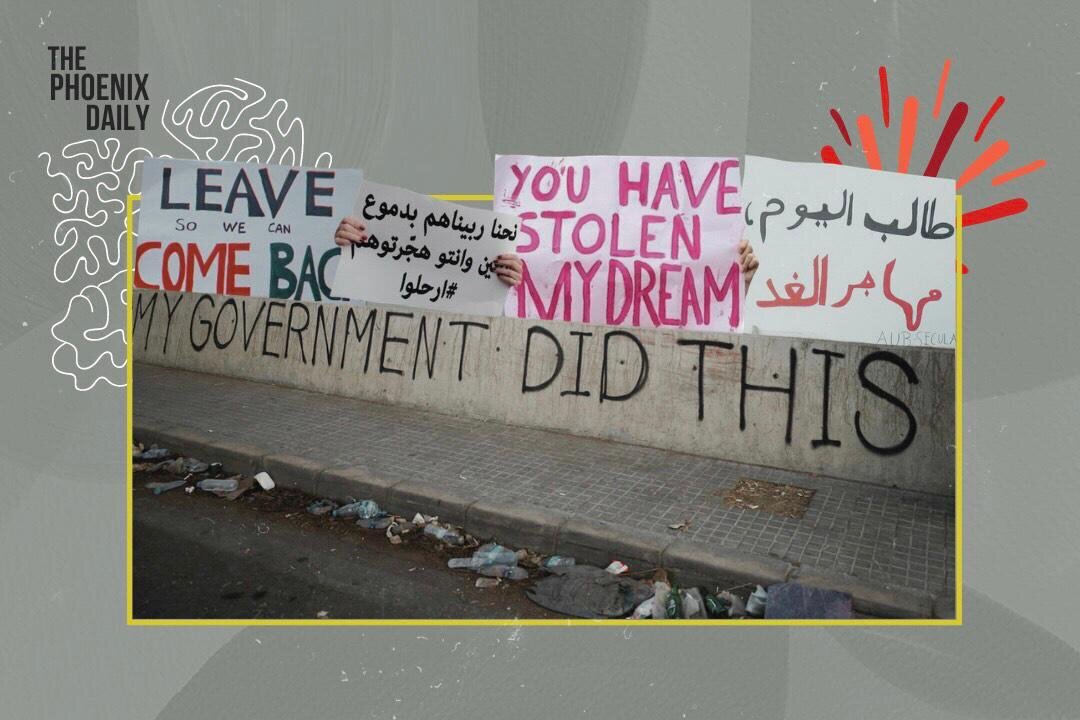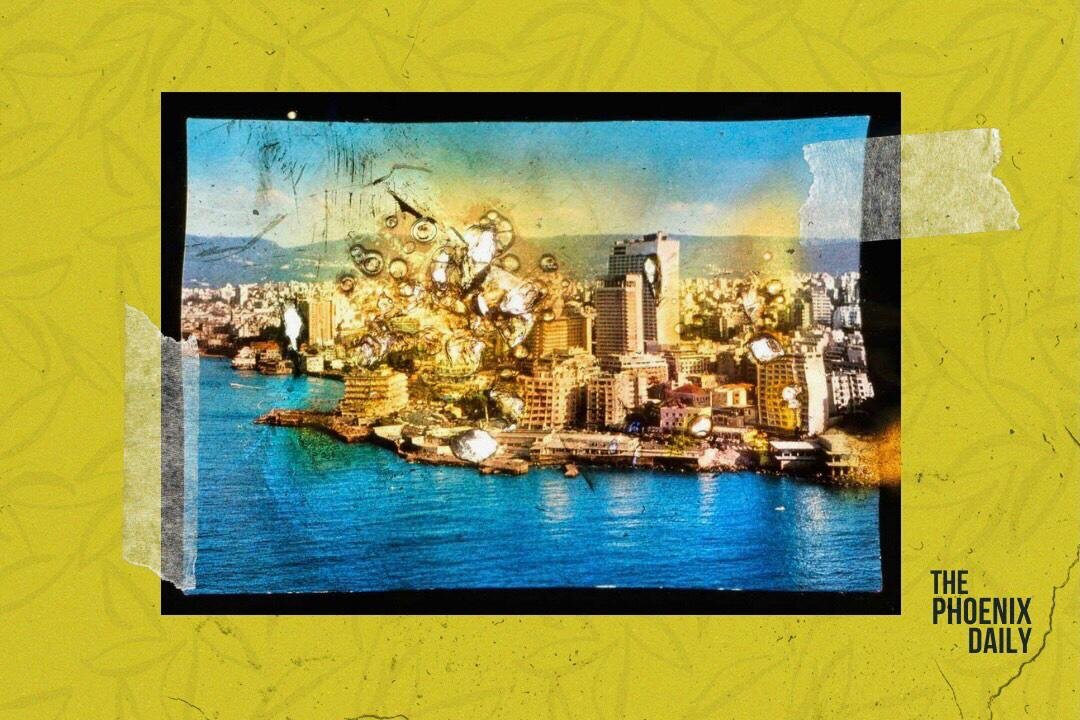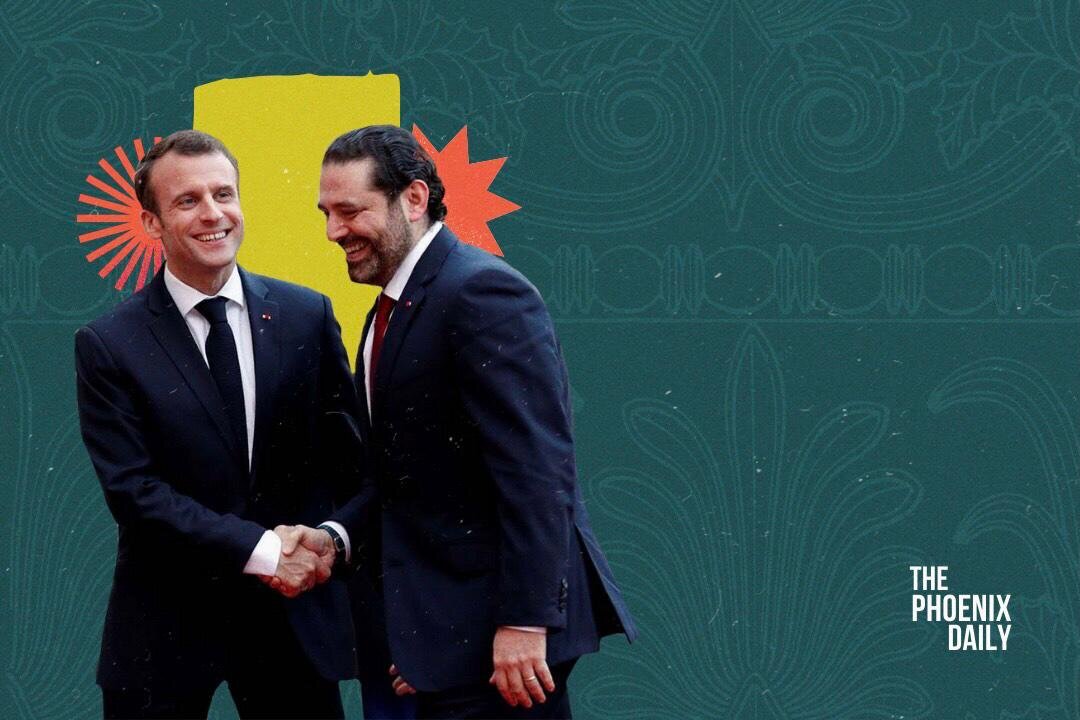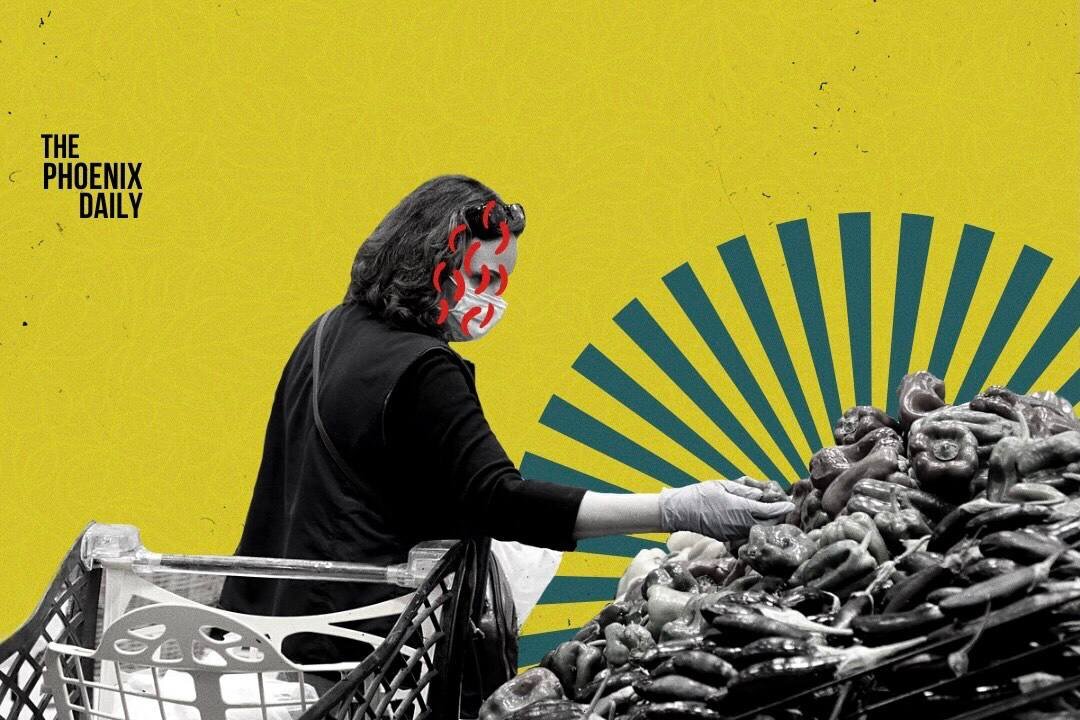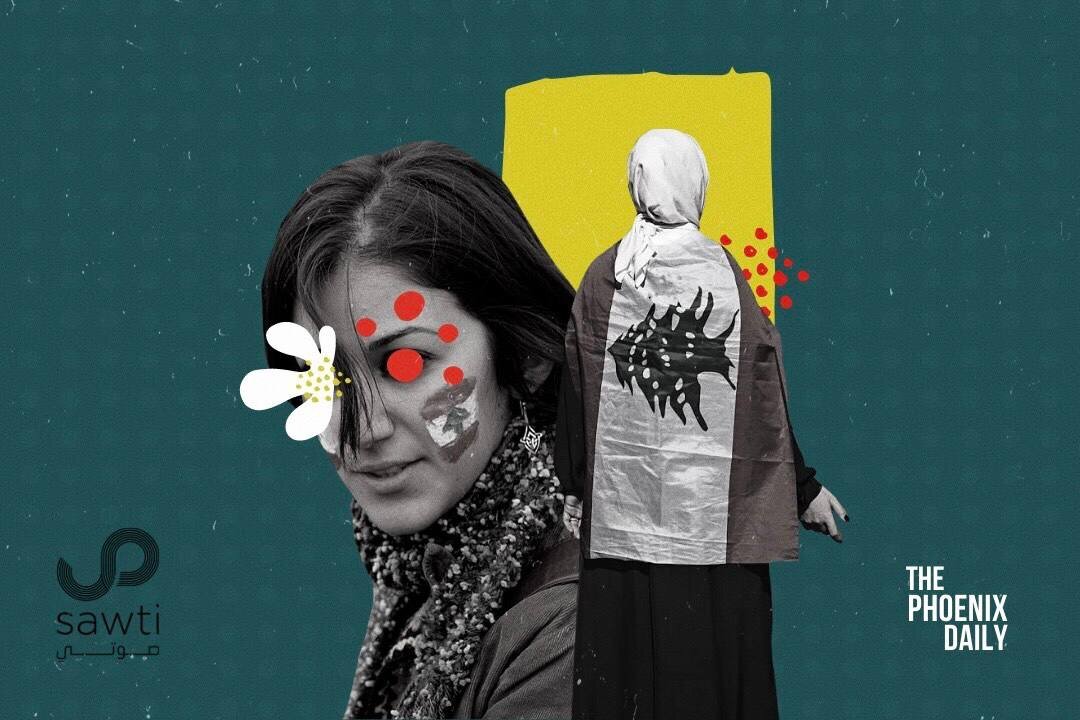
National News, Analyses & Opinions
Multiculturalism in Lebanon - The Sectarian Cleavage at the center of the Lebanese Political Distress
Opinion policy analysis by Anthony Ahrend, Featured Writer
On September 16th, 2012, Pope Benedikt XVI praised Lebanon upon his visit there for its 18 different sects that all live together within the same territory. Yet, do they really? Little did he know, that is not the case. With that being said, what are some of the consequences of this sectarian break- up? It is important to take a look at the political participation in Lebanon and explain why the “Thawra” was unsuccessful.
Women in Displacement - Stories of Syrian Refugees in Lebanon
Opinion piece by Carla Akil, Visiting Contributor
Although war is typically associated with men, little light has been shed on the struggles that women and children bear as a result of war. This article reviews a film entitled “Not Who We Are” by Carol Mansour that gives us an insight into the lives of five Syrian refugee women that share their experiences of loss, displacement, and daily struggles in a harsh and often unfriendly environment in Lebanon.
The Lebanese Brain Drain: A never-ending cycle of immigration and separation
Opinion analysis by Maria Wehbe, Featured Writer
So many Lebanese citizens are fleeing the country in the hope of finding a better life abroad: as of September of 2020, about 380 000 Lebanese are said to be considering leaving their home country as a result of the current economic and political meltdown. With that being said, what are the effects of Brain Drain on the country in question? Well, here are a few: loss of tax revenue, a shortage of important and skilled workers, loss of potential future entrepreneurs, loss of innovative ideas along with many other disastrous repercussions. In the long run, it reduces human capital, economic growth, demographic shifts and increases the cost of public goods.
The Lebanese Identity Crisis - The oldest crisis of them all
Analysis by Myriam Akiki, Staff Writer
Lebanon turned 100 years old just last September. However, the 1st of September, 1920 only saw the birth of Lebanon as an actual nation-state, in what was then called the State of Greater Lebanon. One century later, it is now the Lebanese Republic: a failed state and the crossroad of more crises than one can count on two hands. The oldest crisis of them all may well be the one we’ve ignored for too long and the reason for all the turmoil that is happening today in the country.
The History of Teacher Union Movements in the MENA Region: Different countries, countless times, one same cause
Opinion analysis by Johnny Achkar, Staff Writer and Maria Wehbe, Featured Writer
In the Global North, teacher union movements are among the largest labor organizations, with mandatory union membership fees, making them powerful policy actors with the financial wherewithal to lobby in politics. However, due to this influence, teacher union movements have “fewer allies and are politically isolated”. As a result, just displaying the strength of teacher union movements is insufficient: without a thorough grasp of their mission, aims, attitudes, as well as the difficulties faced that influence their actions, it diminishes their credibility at times.
The Memorialization of the Lebanese Civil War Through Art Production - Why is art important in transitional justice? And how have Lebanese artists memorialized the civil war?
Analysis by Audrey Azzo, Visiting Contributor
Transitional justice is an interdisciplinary field of study that focuses on post-conflict societies and encompasses political science, economy, sociology amongst other disciplines related to social sciences. When theorizing transitional justice, scholars overlooked the importance of art in the mechanisms employed. In 2012, The ICC found homas Lubanga Dyilo guilty of war crimes in the Democratic Republic of Congo and for the first time since the emergence of the field, the court insisted on the use of art as a means of reparation to the victims.
In the aftermath of the Lebanese civil war, little to none of the transitional justice mechanisms that we know of were employed, and the necessary task of commemorating the war was left to the civil society. The essay focuses on the importance of art in transitional justice and provides examples of art productions exhibited by prominent artists in the years following the uncivil war.
Can the International Community Save Lebanon? - What has been, and should be, the role of international actors amid Lebanon’s crisis
Opinion Analysis by Gaia Bchara, Featured Writer
The international community’s involvement in Lebanon has long been that of a stabilizing force in favor of the status quo. This is clearest in the continuous economic and financial bailouts that served to bolster Lebanon’s political class, free of any coherent implementation plans. At the heart of policies directed at the Lebanese political class lies the prospect of reform. Today, it is increasingly clear that a meaningful Lebanese partner cannot be found in its current oligarchy. As such, fashioning a new role for the international community in Lebanon is central to the country’s reconstruction.
Lebanese Tourism – Summer 2021 Edition: The country’s palliative amidst its crises?
Opinion Analysis by Zeina Dagher, Featured Writer
Lebanon’s tourism sector has always been credited with keeping the country’s economy afloat knowing that the industrial sector is quasi-absent. In the midst of the worsening economic crisis Lebanon is going through, and after all the restrictions that the pandemic had imposed on Lebanese businesses, there’s no doubt that this sector took a hard blow. But can we say that summer 2021’s tourist activity will bring them, and the economy in general, some relief? On one hand, the Lebanese pound is at an all-time low, which is extremely attractive for foreigners. But on the other hand, there’s the risk of growing civil and political strife as shortages abound. Not to mention the recent violent outburst of israel and the overall unsteady regional situation that could easily dissuade tourists from spending their summer here and strike one of Lebanon’s only chances of temporarily readdressing its economy…
The Parliamentary Series - The exclusive interview and discussion with the head of the Parliament's Health Committee, MP Assem Araji
Yara Dally, Contributor
The healthcare system is collapsing at a breakneck speed, and the harm could be irreversible shortly. To that end, on the 5th of June the Phoenix Daily met exclusively with the Head of the Parliamentary’ health committee MP Assem Araji, for an interview to discuss recent updates regarding the shortage of medication supply; what it’s really happening, what should be done, and mentioning the Government, the Central Bank of Lebanon, as well as the medical importers’ position in this matter. In addition to the COVID-19 situation in Lebanon.
Lebanon’s Economic Performance (2020/2021): A House of CardsMacroeconomic Indicators and International Responses to Lebanese Officials
Opinion Analysis by Siriine ElKhalili, Featured Writer
Lebanon’s economic crisis is deepening with hyperinflation, shortages in essential services, frightening poverty rates, and inconsiderate political authority. Lebanon’s ruling class have proven to be a catalyst of the current crises piling up and unfolding, and foreign countries continue to express their disappointment. How long will the Lebanese people continue to face this injustice?
A Lapse in Diplomacy: The (now former) Lebanese FM provokes nationalist outrage in the Gulf
Opinion Analysis by Naif Al Rogi, Featured Writer and Alissar Azzam, Contributor
Following last month’s Captagon stink, the (now former) Lebanese minister of foreign affairs appears on TV last week causing another stink that stokes already strained Lebanese-Saudi relations, provokes nationalist outrage in the gulf, and jeopardizes the livelihood of the many Lebanese families depending on gulf remittances for survival. Meanwhile, Lebanon’s traditional ally and donor displays willingness to go about the relations of fraternity and respect that have dominated Lebanese-Saudi relations for so long.
Lebanon is “Waiting for Godot”: An analysis on the failure of the Lebanese revolution
Opinion Analysis by Taleen El Gharib, Featured Writer
If Samuel Beckett believes that people live aimlessly waiting for a purpose, and Sigmund Freud believes the act of waiting is a coping mechanism against pain, then what can one deduce about the future of Lebanon and movements against corruption?
A Panoramic View of the Maritime Borders ConflictBetween Lebanon and Syria - tackling the issue through different analytical perspectives
Opinion Policy Analysis by Yara Dally, Visiting Contributor
All nations are searching for ways to stand forward and working out to release their interest at any costs, and then you have Lebanon; where it’s political elites having loyalties to external actors rather the citizens, might be once again victim of a geopolitical game.
Gerrymandering Electoral Districts - A Brief History of Redistricting in Lebanon, and its influential Role in the Electoral Process
Opinion Policy Analysis by Nicole Nicolas, Visiting Contributor
Like most other nations of the modern world, Lebanon has played host to countless, and very elaborate, forms of gerrymandering. Lebanon’s electoral districts have been drawn and redrawn several times since the country’s inception. In a sectarian power sharing system dating back to 1943, Lebanon’s sectarian leaders have always agreed to draw district lines together, each side going for a bigger piece of the pie. With a few seasonal disputes here and there, an arrangement is always reached, “No winners and no losers”, according to the late Prime Minister Saeb Salam - a principle that defines Lebanon’s political structure to this very day. The result of such agreements means that election results are almost always determined before elections even take place.
Red Flags for the Local Financial System - Lebanon will soon be out of the global financial system if no corrective measures are implemented
Opinion Analysis by Yara Dally, Visiting Contributor
Another menace causing concern about Lebanon's presence in the global financial system. International lenders have long viewed the country's banks as risky, putting correspondent banks' relationships with the Lebanese banking industry on the verge of termination.
Amidst Lebanon’s economic crisis, merchants’ greed strikes again - How to stop their unlawful practices, from a historical and legal point of view
Analysis by Zeina Dagher, Featured Writer
In the Lebanon of 2021, it’s almost impossible to go a day without hearing people cursing the politicians’ corruption and greed, that led this country to its downfall. However, it sadly appears that citizens have also taken on their leaders’ example, ruthlessly exploiting each other in these dire times: corruption reaches the leader and the citizen equally. Yes, you guessed it, we’re talking about the merciless merchant greed that has been crippling the country for almost a year now. The unlawful practices that merchants and dealers have been using to profit off this country’s misery, like food monopolization and price manipulation, have left the people in interminable queues and with empty stomachs, pouring their last shred of dignity into buying the bare essentials to survive with their families. But in a country that supposedly abides by the rule of law, how are such practices, that violate the people’s most basic rights, so widely permitted?
Beirut: A city still seeking justice - A closer look into the domestic investigation and the possibility of going international
Analysis Report by Joelle El Sheikh, Featured Writer
Eight months into the most devastating explosion in Lebanese history and the search for justice continues. On August 4th, 2020, thousands of tons of ammonium nitrate, that were recklessly stored at the Beirut Port, exploded, causing massive destruction to the city and its residents. To ensure the presence of the principle of accountability and justice, four main indicators must follow through: The duty to prosecute, the right to truth, the right to reparation, and the duty to ensure non recurrence.
Women’s Political Exclusion in Lebanon: The Legacy of Colonial Pasts, Religious Institutions, and Sectarianism
Opinion Analysis by Roa Daher, Featured Writer
In the span of a few decades, Lebanon went from being one of the first Arab countries to grant women suffrage in 1952 to now having one of the lowest rates of women’s political participation in the MENA region. Even though more than 100 women candidates registered in the 2018 parliamentary elections, which is a ten-fold increase from just a decade earlier and the largest number in Lebanese history, women only won 6 out of 128 seats in the parliament. 49.69% of the Lebanese population is composed of women, and yet these women only hold 4.69% of the seats in parliament. Beyond the obvious issue of a lack of representation in politics, women face many obstacles that may prevent them from seeking a seat in the parliament, never mind actually winning the seat against a male candidate.
The Minister Series - The exclusive interview and discussion with the Former Lebanese Minister of Interior Mr. Ziyad Baroud
Francesco Pitzalis, Staff Writer
Lebanon has been mired in political and financial turmoil since the onset of the October 17th uprisings in 2019. As such, the routes out of the crisis can no longer be limited to simple political reshuffling. The change must be systematic and truly reformative. To that end, The Phoenix Daily sat down with former minister of the interior and municipalities, Ziyad Baroud; for a discussion on decentralisation as a governing principle for Lebanon. Mr. Baroud is considered a renowned expert on the topic of decentralisation and has also staunchly campaigned for electoral reform.
Despised Belonging – Defining Political Brainwashing
Opinion piece by Gaelle Nohra, Staff Writer
Beyond compare, the uprisings incentivized the Lebanese community to become both more informed and involved about the happenings taking place within their territory’s border while simultaneously proving that the way out of the turmoil lies exclusively in the hands of a brand new political order. That said, it also contributed to the normalization of despise directed towards individuals having affiliation towards ruling parties.




